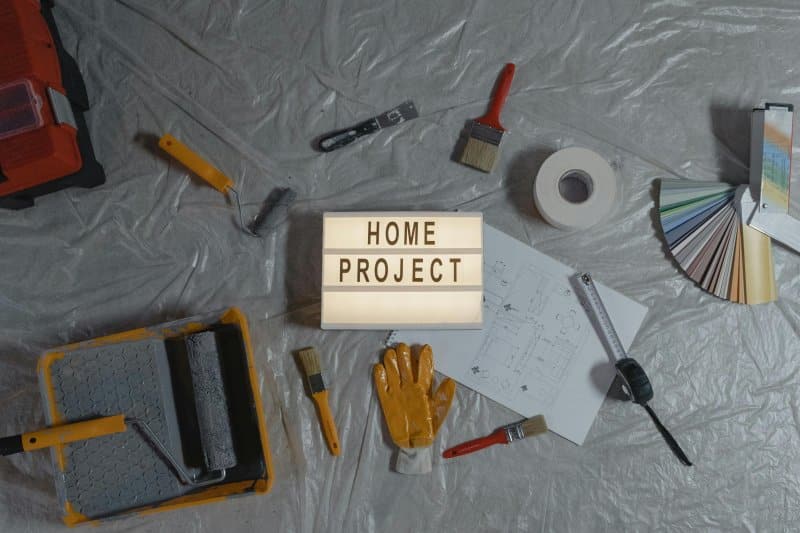There’s a unique satisfaction that comes with handling your own home renovation project. Whether it’s tearing out old tiles, patching drywall, or building something from scratch, doing it yourself often feels more personal and sometimes more affordable. But with that freedom comes a risk many homeowners overlook. Even simple tools can become dangerous without the right protection.
Before you grab that hammer or power drill, take a step back and look at your gear. One essential you shouldn’t skip is a solid pair of leather work gloves. They protect your hands from sharp edges, splinters, and heat, and they’re just one part of staying safe while you build the space you dream about. Let’s take a closer look at the gear every DIY renovator should have before starting.
Gloves That Work With You
Thin garden gloves won’t help much when you’re handling sharp tools or coarse lumber. That’s where work gloves come in. They’re thick enough to protect your hands from cuts, blisters, and heat, yet flexible enough to still allow control and dexterity.
You’ll want gloves that fit snugly but not tightly. They should allow your fingers to move naturally without bunching up or slipping. Look for reinforced palms or padded knuckles if you’ll be using hand tools a lot. A good pair makes a surprising difference in how long you can work comfortably and safely.
Protective Eyewear
Eyes are easy to damage, and renovation work stirs up more dust, debris, and flying bits than you’d expect. One nail pulls wrong, and you’ve got splinters headed straight toward your face. That’s why protective eyewear is non-negotiable. Regular sunglasses won’t cut it. You need safety-rated goggles or glasses that wrap around and shield your eyes from all sides.
Look for models that don’t fog up easily and are comfortable enough to wear for a few hours. If you already wear glasses, go for styles designed to fit over them without squeezing or slipping. Even if you think a task is too small to worry about, put it on. It only takes one tiny chip of tile or a puff of sawdust to do real damage.
Hearing Protection
Some tools are louder than you realize until it’s too late. Saws, sanders, and nail guns can all exceed safe decibel levels in just a few minutes of use. Prolonged exposure can lead to ringing in the ears or even long-term hearing loss. That’s not something you want as a souvenir from your renovation.
You can choose between foam earplugs, which are cheap and disposable, or over-ear protectors, which are more comfortable for extended use. Many people prefer over-ear styles for quick tasks since they’re easy to put on and take off. Either way, keep them within reach and get in the habit of wearing them before you flip the switch on your power tools.
Dust Masks and Respirators
Tearing down walls, sanding old wood, and scraping off paint kicks up more than just a mess. It releases particles into the air that you end up breathing in. Sometimes, it’s just dust. However, at other times, it may also include mold spores, chemical fumes, or even old lead-based paint.
A simple dust mask is enough for low-risk tasks like sweeping or cutting clean wood. But for anything involving chemicals or older materials, step it up to a proper respirator with filters. These masks aren’t just about comfort. They protect your lungs from long-term exposure to things that don’t belong in your body.
Work Boots or Steel-Toe Shoes
Your regular sneakers might feel fine, but they’re not designed for construction zones. A single dropped hammer or sharp nail on the floor can turn a small mistake into a trip to urgent care. Good work boots or steel-toe shoes give your feet the support and protection needed when you’re standing, lifting, or climbing for hours at a time.
The best pairs come with slip-resistant soles and reinforced toes. Even if you don’t plan on doing major demo work, having strong, stable footwear will make every project safer. It also makes you more confident when moving heavy materials or climbing ladders, which helps avoid awkward steps and sprains.
Bonus: Knee Pads and Back Support
If you’ll be spending hours on your knees laying tile, painting baseboards, or fixing flooring, your body will thank you for extra support. Knee pads reduce strain and help you stay in position without discomfort. Likewise, a basic back support belt can remind you to lift properly and protect your spine during heavier tasks.
These items aren’t always considered “essential,” but they’re game-changers if your project stretches beyond a weekend. They don’t just help with safety. They also make the work more enjoyable by reducing soreness later.
When you suit up with the right safety gear, your DIY renovation becomes a lot smarter. You move with more confidence, finish with fewer injuries, and focus on the fun part, transforming your space into something new. The gear may not be flashy, but when you’re deep into a project, it’s the most important tool you own.

